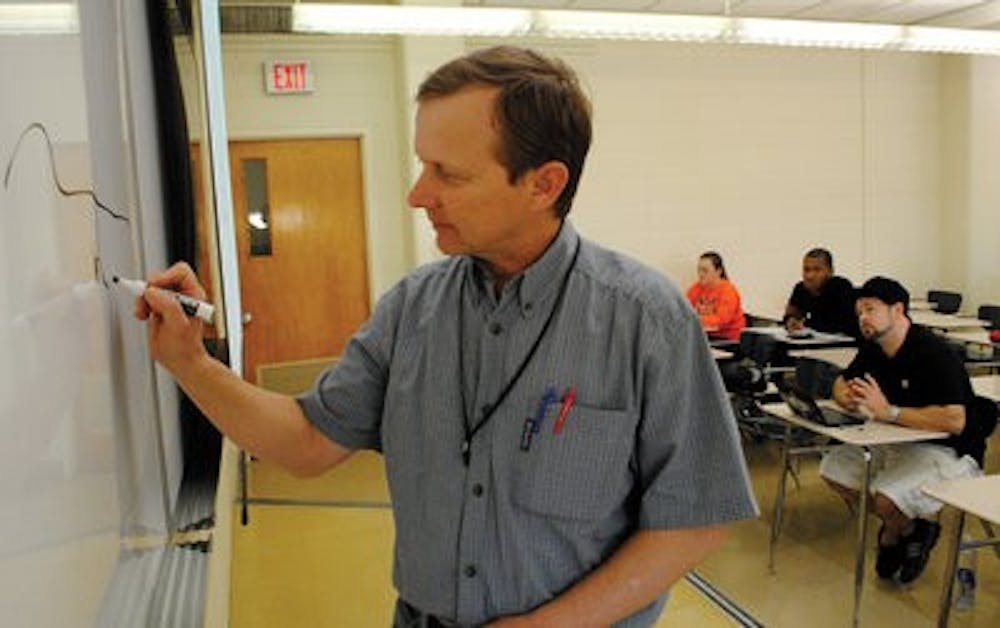The current generation of students is becoming the driving force behind major crop production, explained Wheeler Foshee in his Sustainable Vegetable Crop Production class.
Instead of focusing on the basics of crop production in a simple garden, Foshee educates his students on mass production for large profit.
The class consists of a lecture period and laboratory session immediately following to ensure students take the information learned in the classroom and apply it directly in the field.
"Once we get to the field and start doing some hands-on work, they really enjoy that," Foshee said. "Unfortunately, time doesn't allow us to grow the whole crop, but at least they get a taste of it."
The lecture is designed to take a certain crop and explain all aspects of producing that crop to its fullest potential, including the best fertilizer, soil condition, placement of the crop within the soil and elimination of pests.
The course covers the majority of popular vegetables, ranging from tomatoes to zucchini, and different grasses so that students will leave with competitive skills in producing tomorrow's crops sustainably.
Foshee said the class is not about being a gardener, but about producing enough crops to sustain the industry and reward the producer with a large enough profit.
"Being an organic farmer is tough," Foshee said. "We cannot feed the world on organic products alone."
Students are expected to memorize taxonomic names of crops and know the molecular makeup of fertilizer particles.
Foshee said what students enjoy least about the class is tests, especially since the class is at the 5000/6000 level.
"It isn't easy or else everyone would be doing it," said S.T. Richardson, senior in landscape horticulture.
Students take two tests and a final exam during the semester. Graduate students in the class are also required to submit a final research paper.
"It is definitely not an easy class by any means, but at the same time it is not unmanageable," said Ian Campbell, graduate student in agriscience education. "It is pretty scientific, but for me, I like that stuff, so it comes easy."
Foshee illustrated the method of picking snap beans by hunching over in the middle of class.
"He is one of the most energetic professors I have probably ever had," Campbell said. "He loves this stuff, and it will stick with you."
Do you like this story? The Plainsman doesn't accept money from tuition or student fees, and we don't charge a subscription fee. But you can donate to support The Plainsman.





